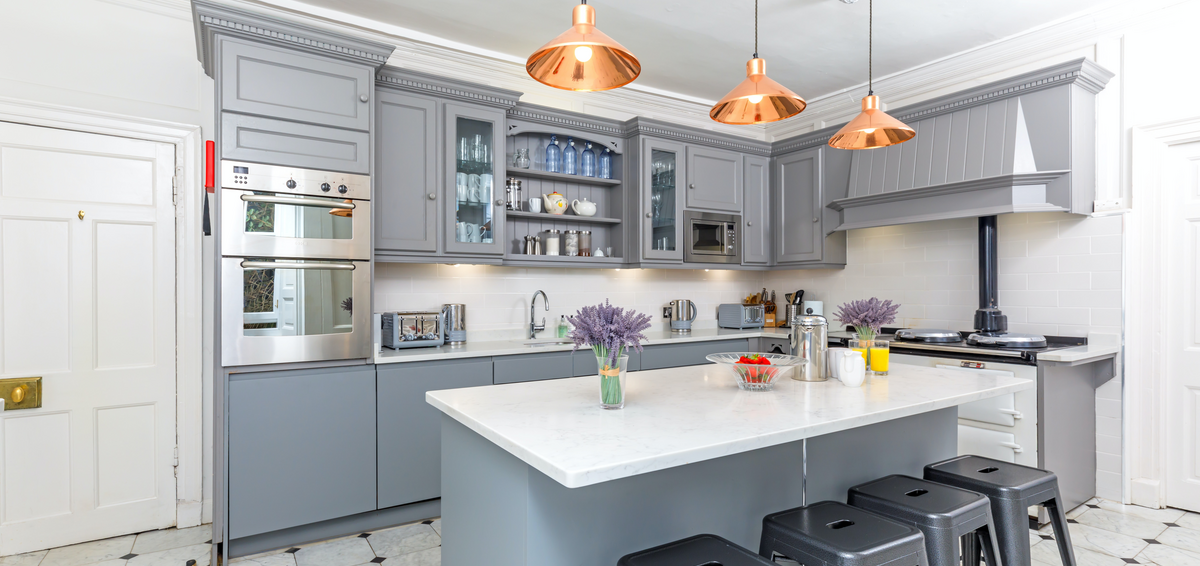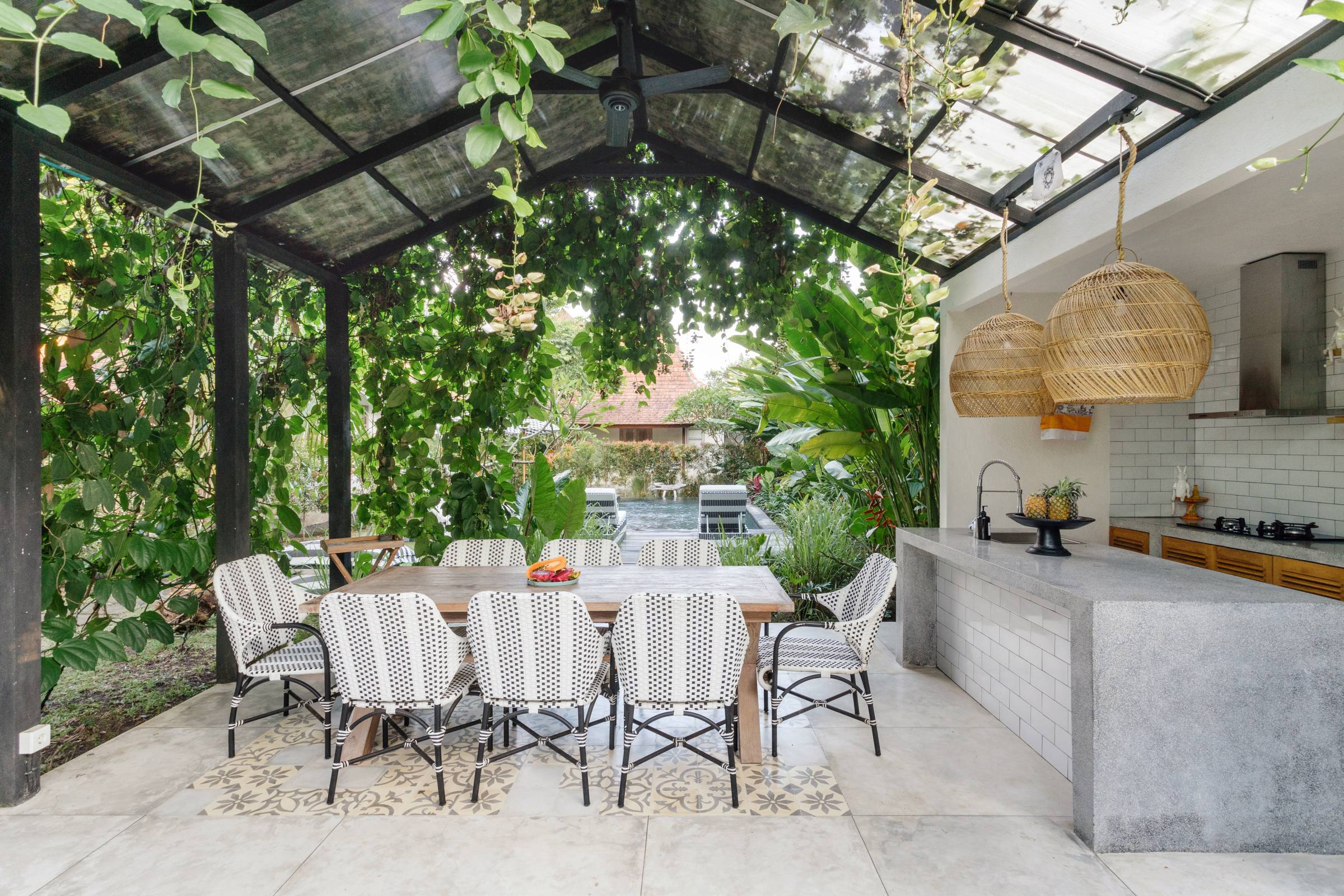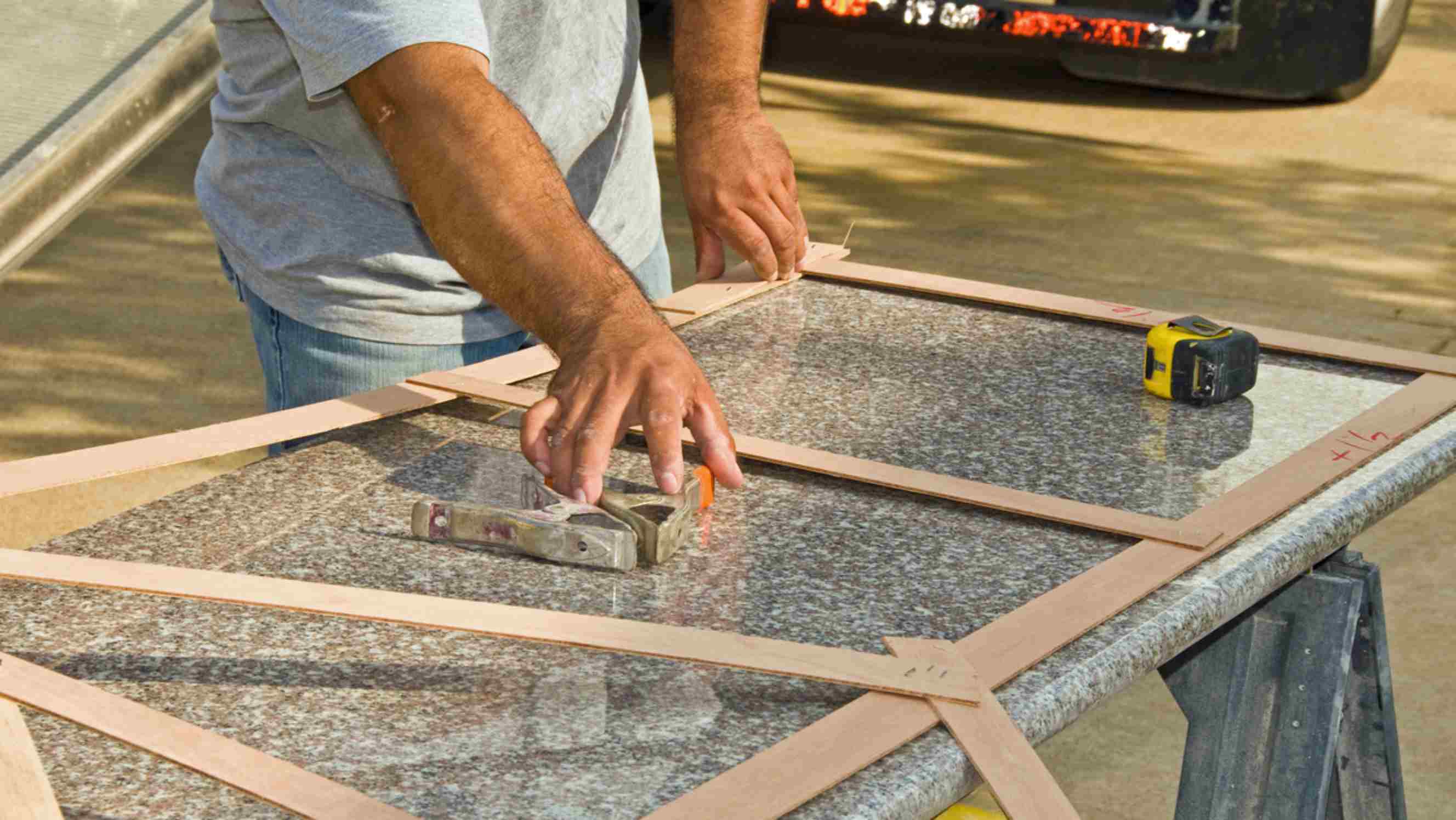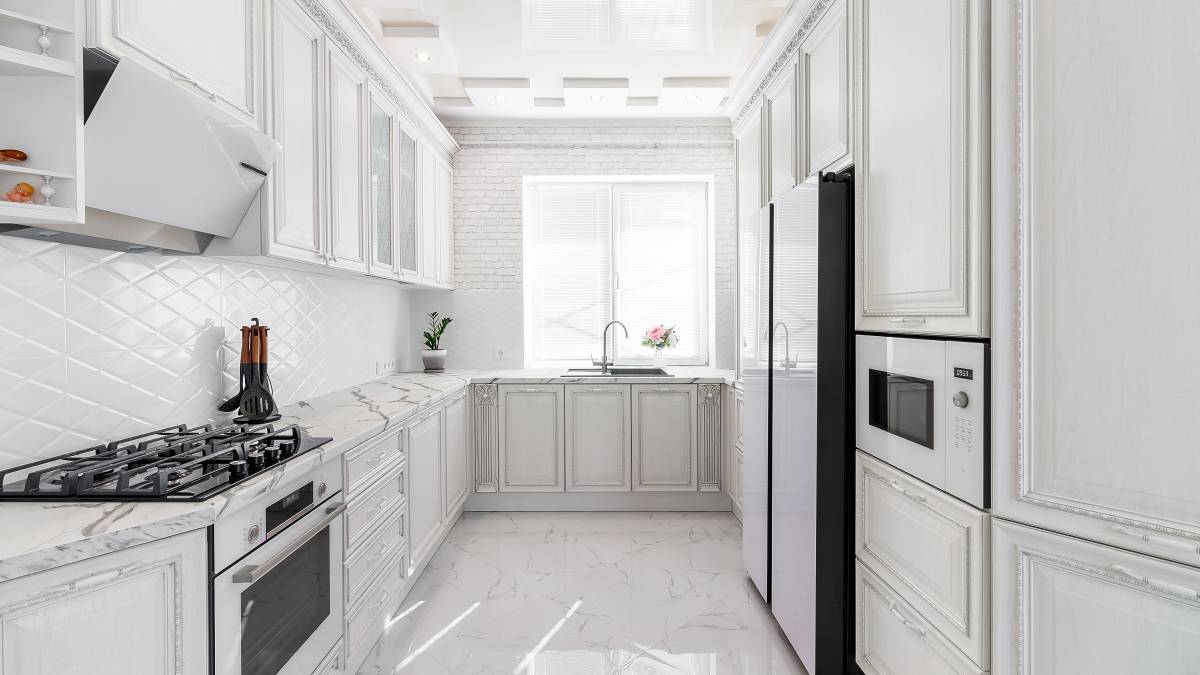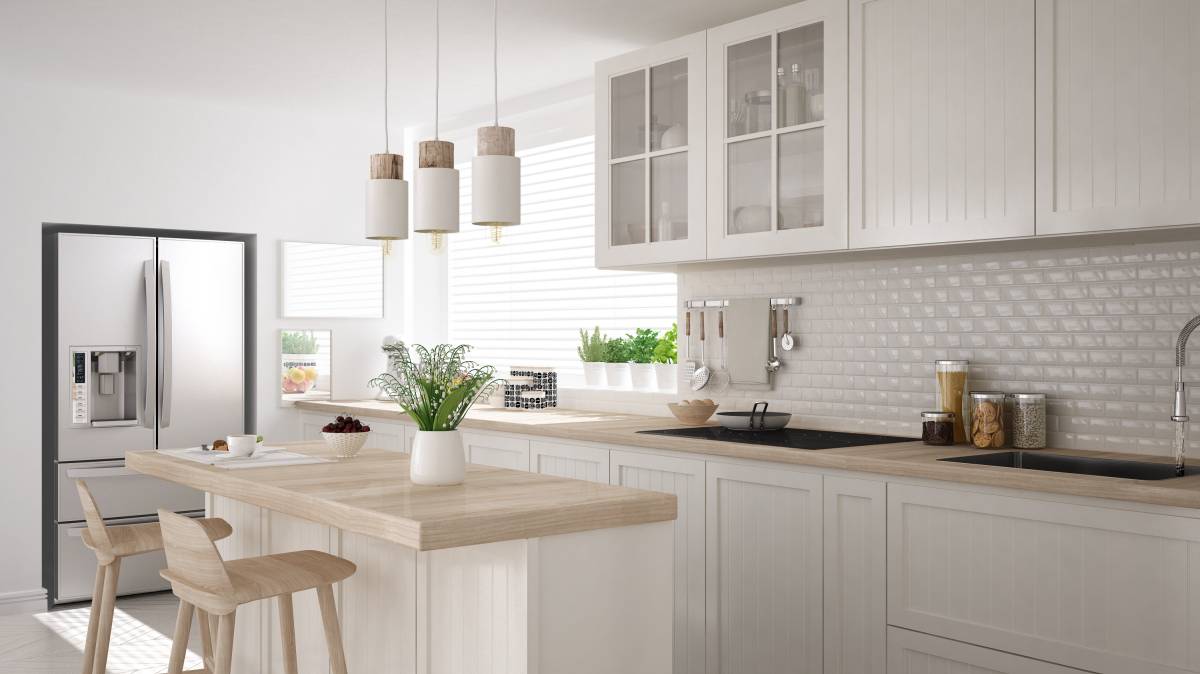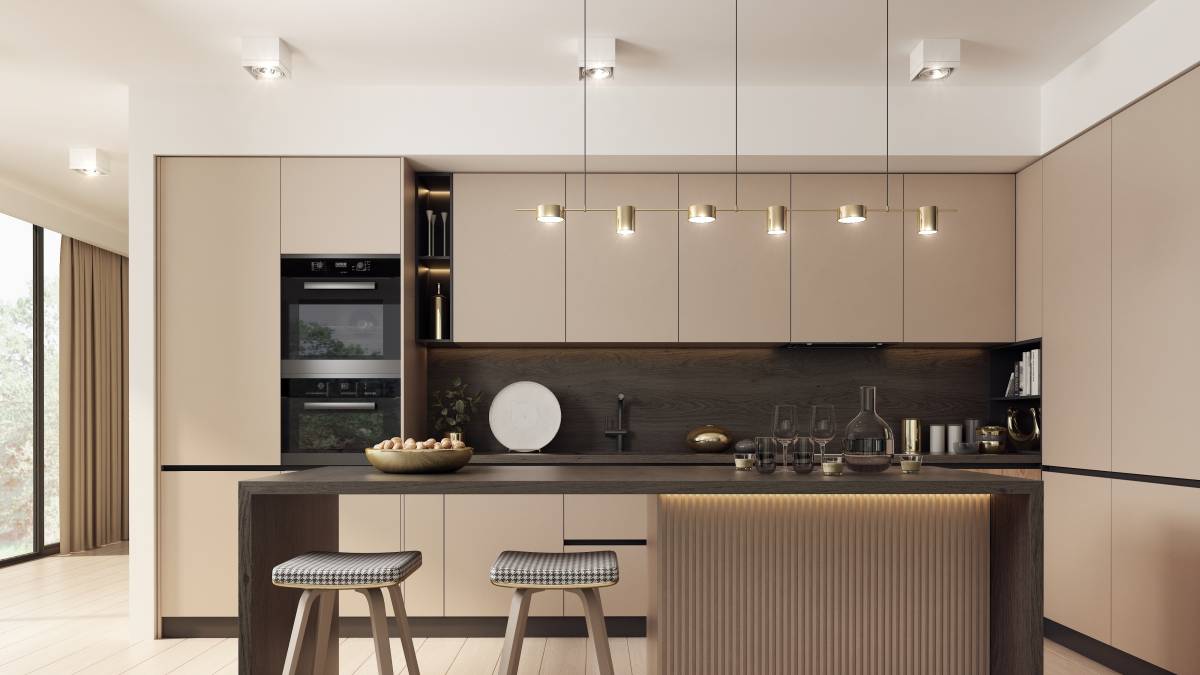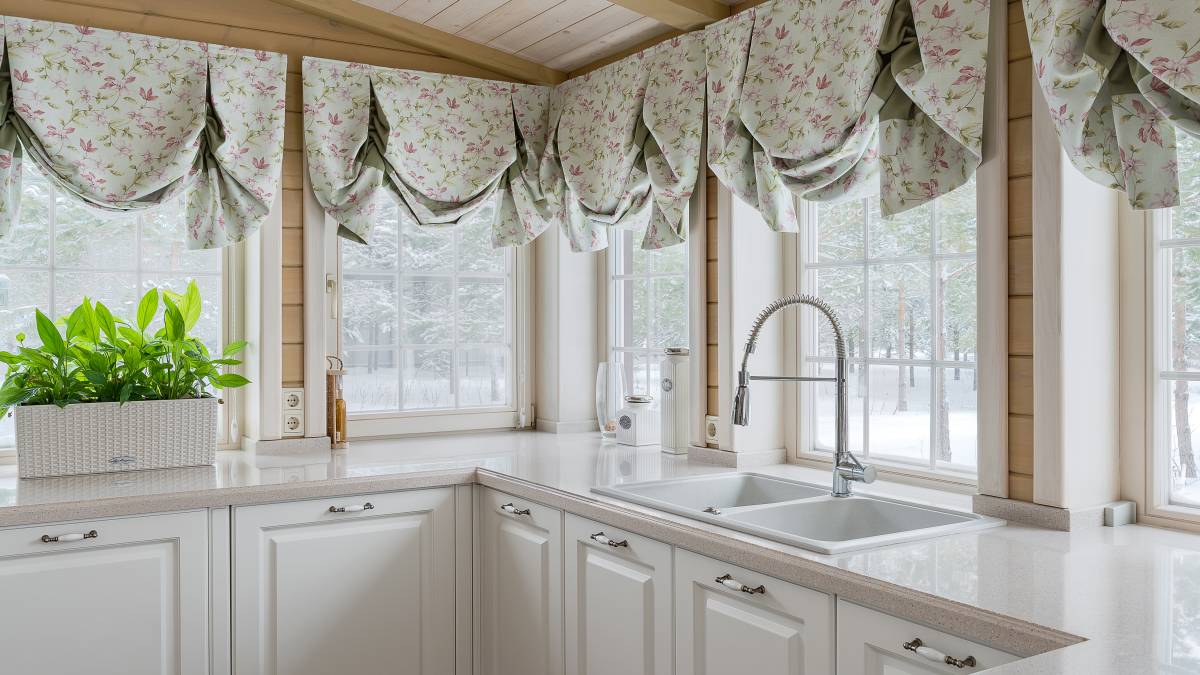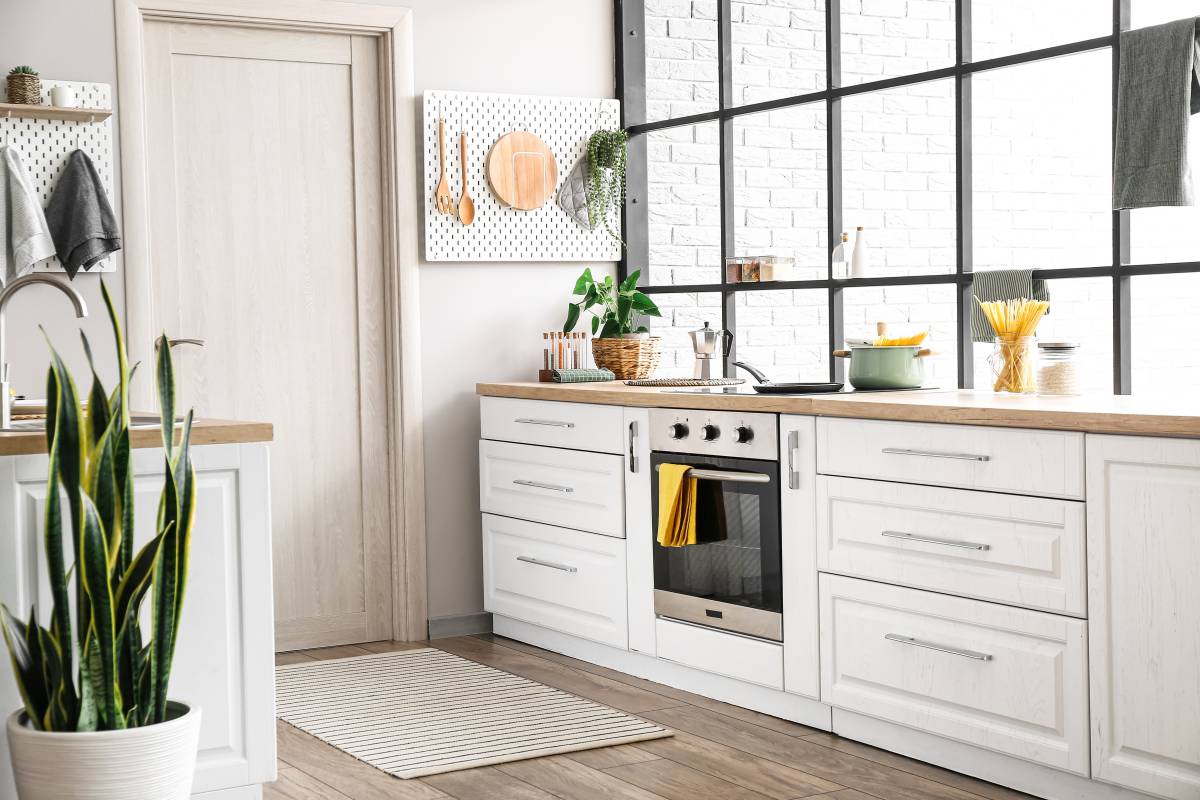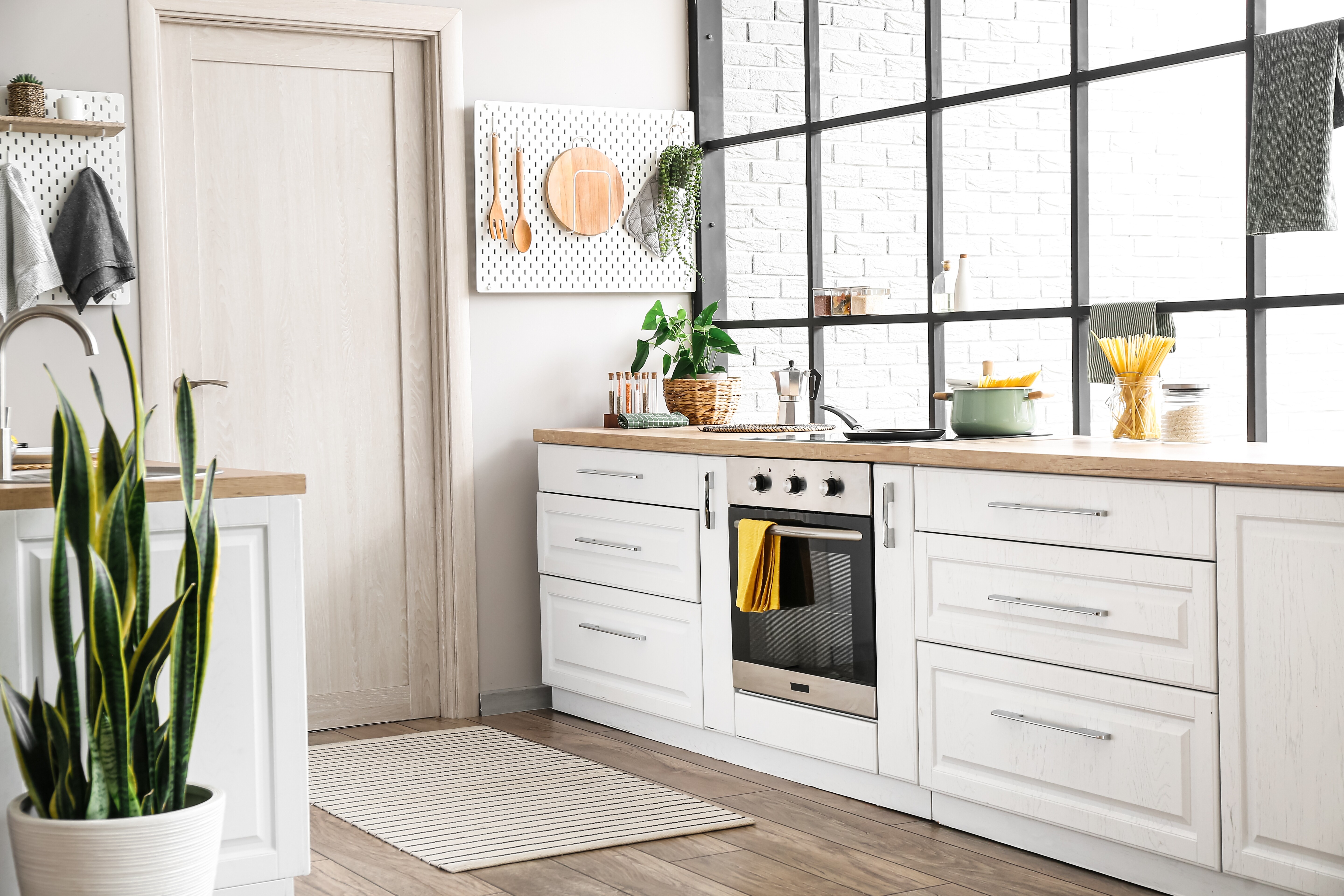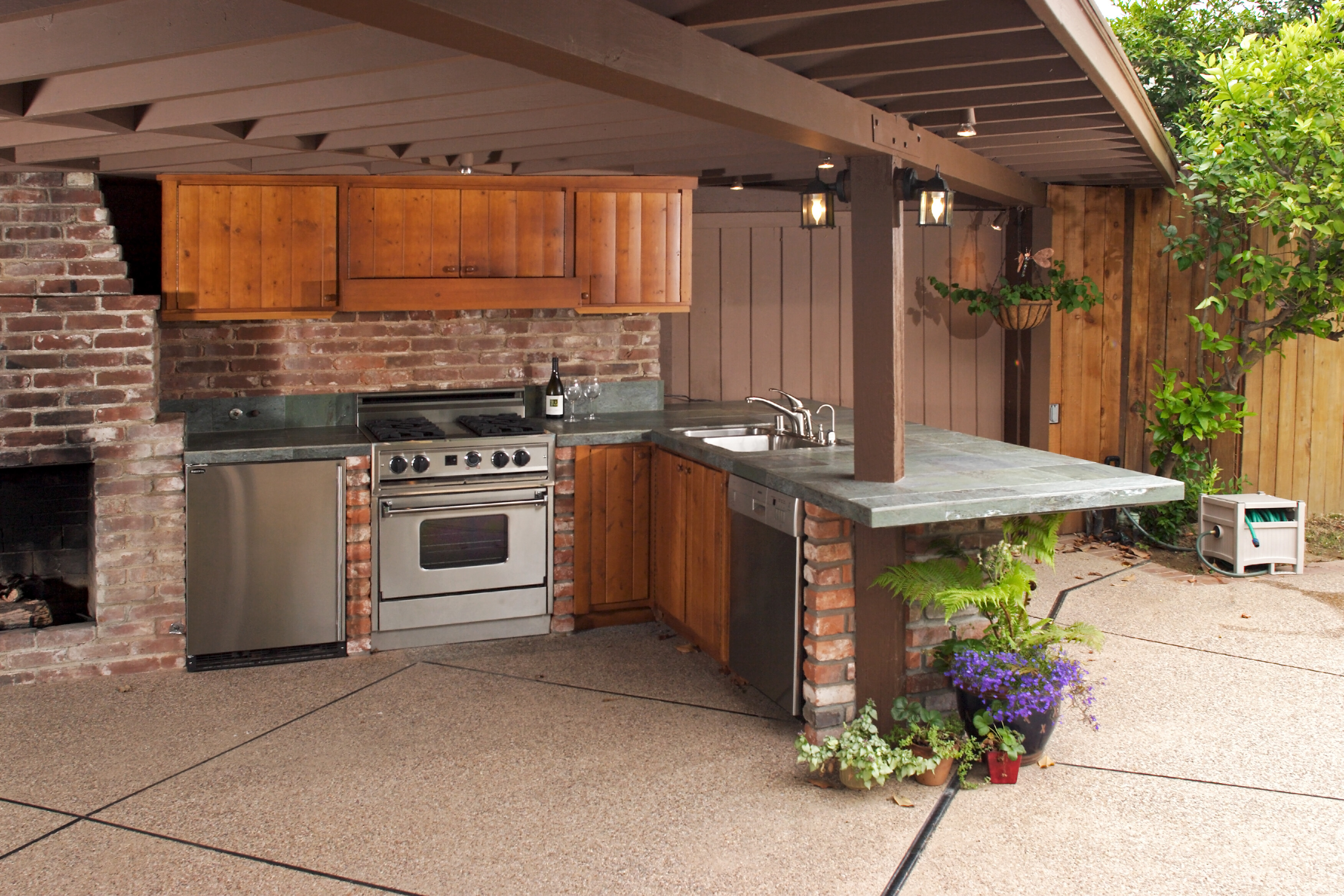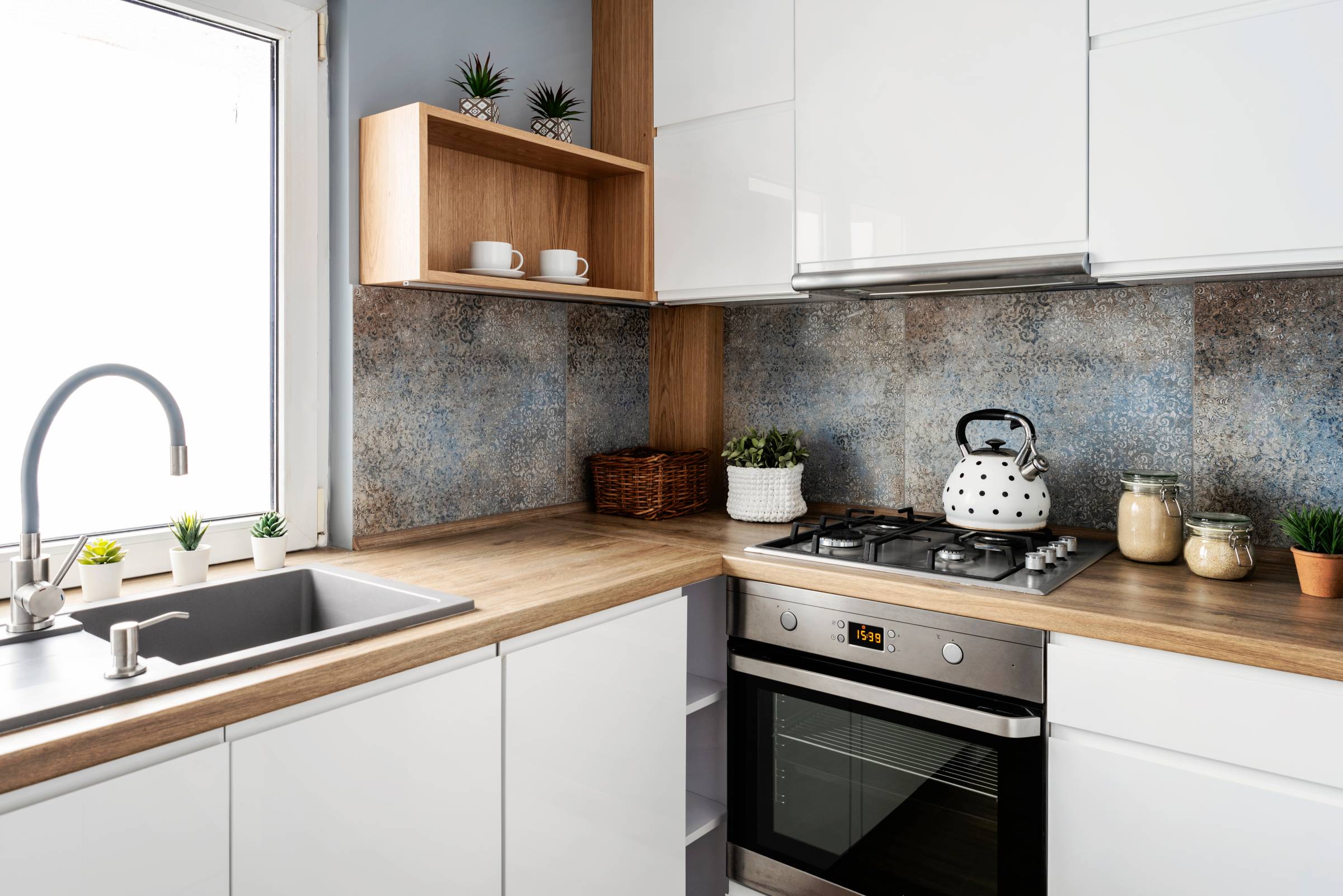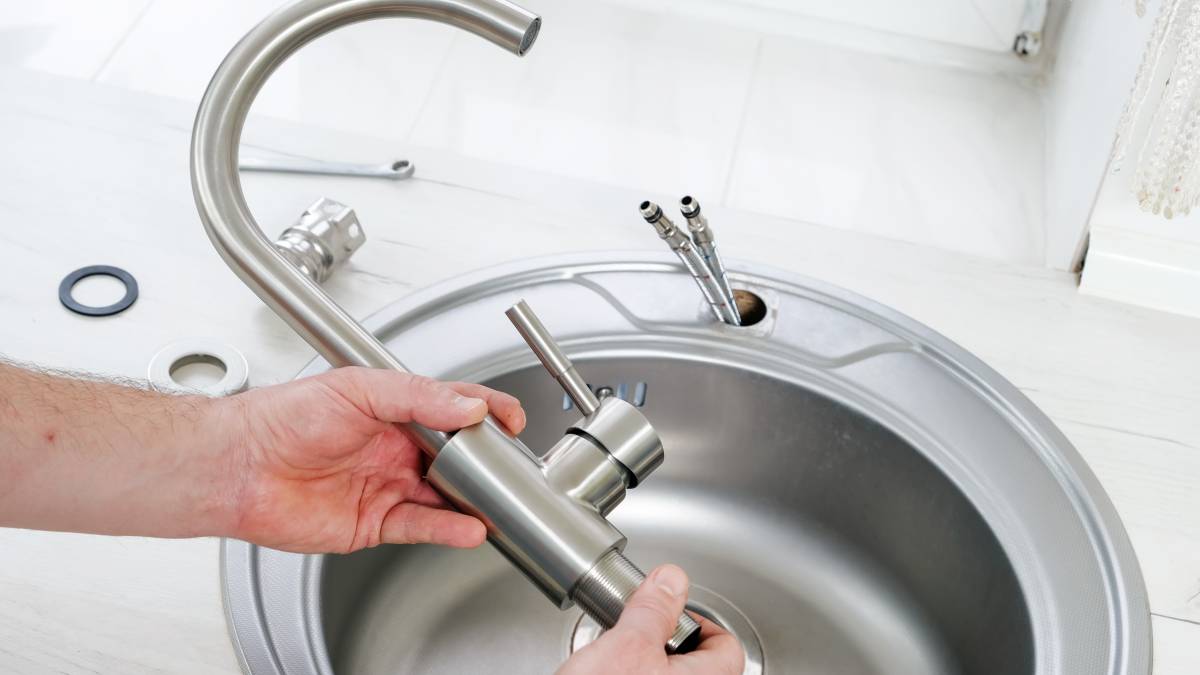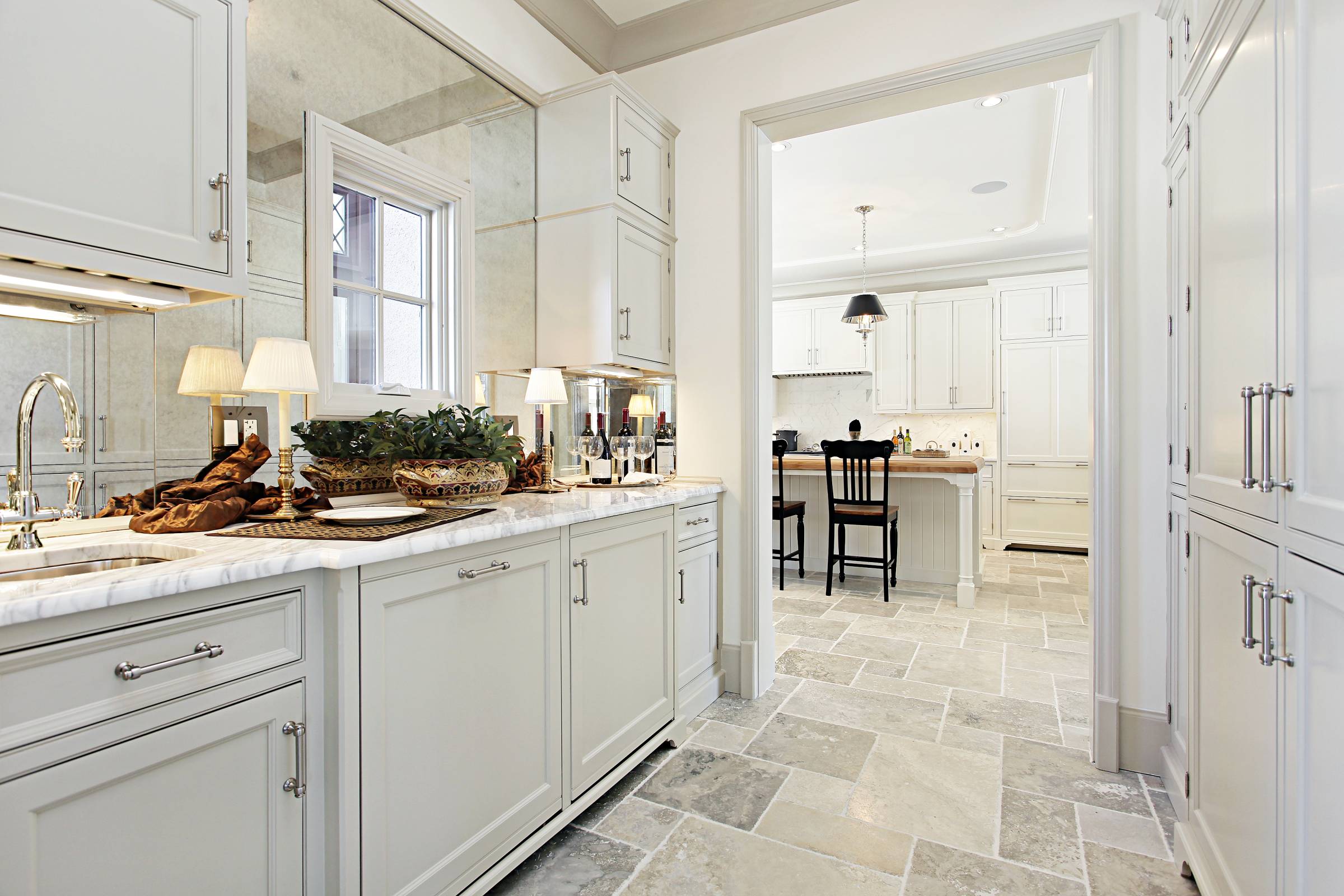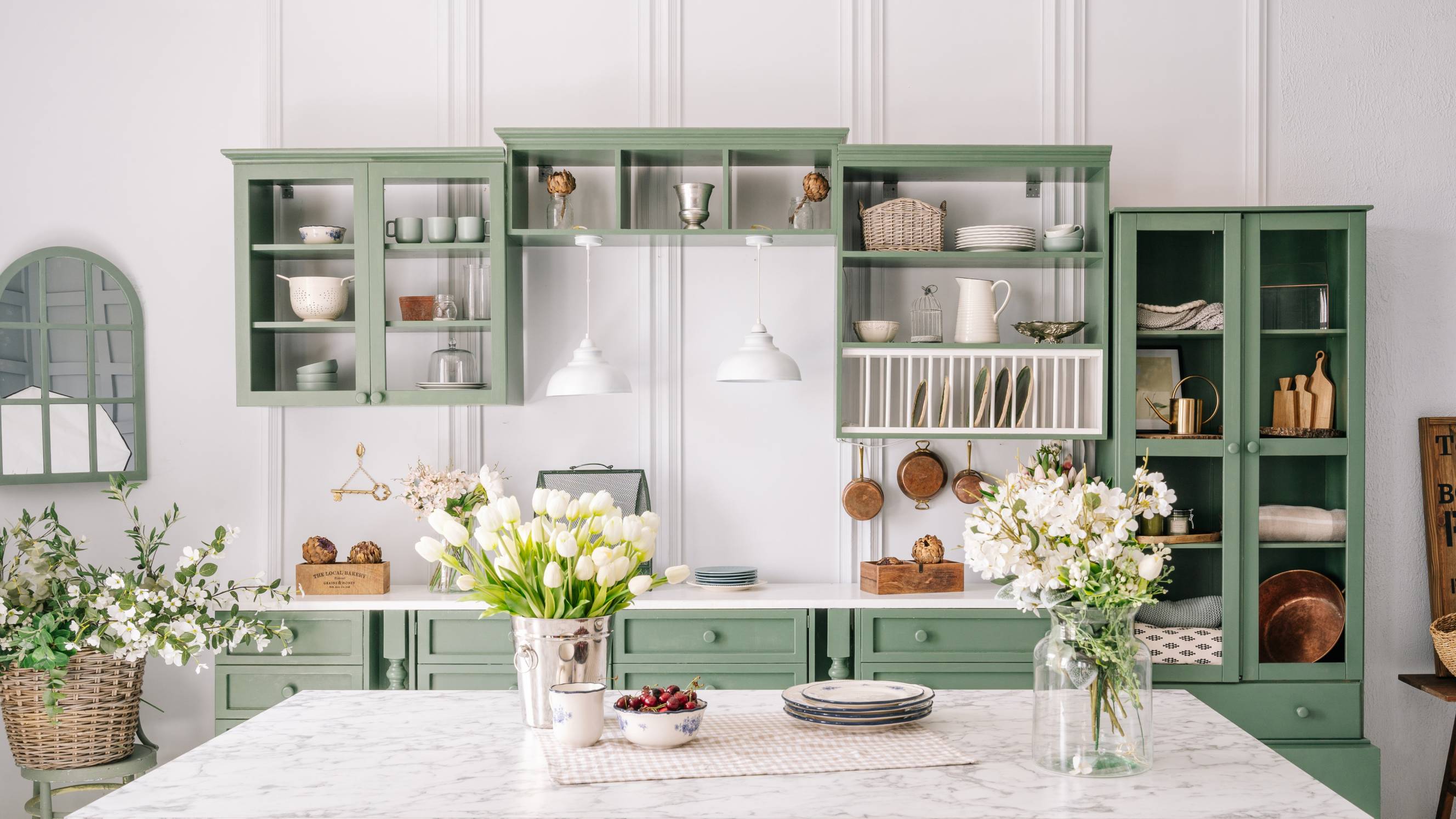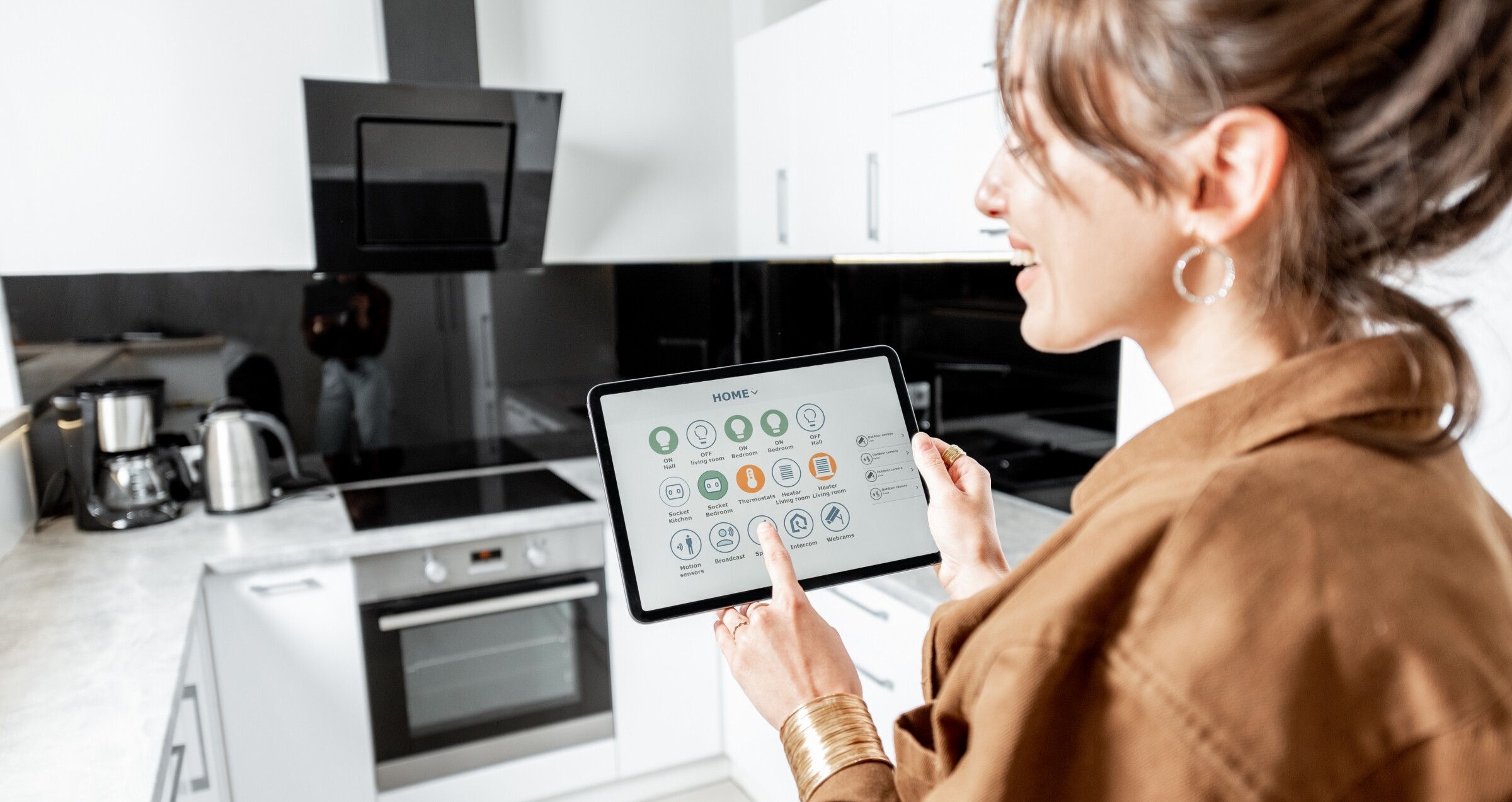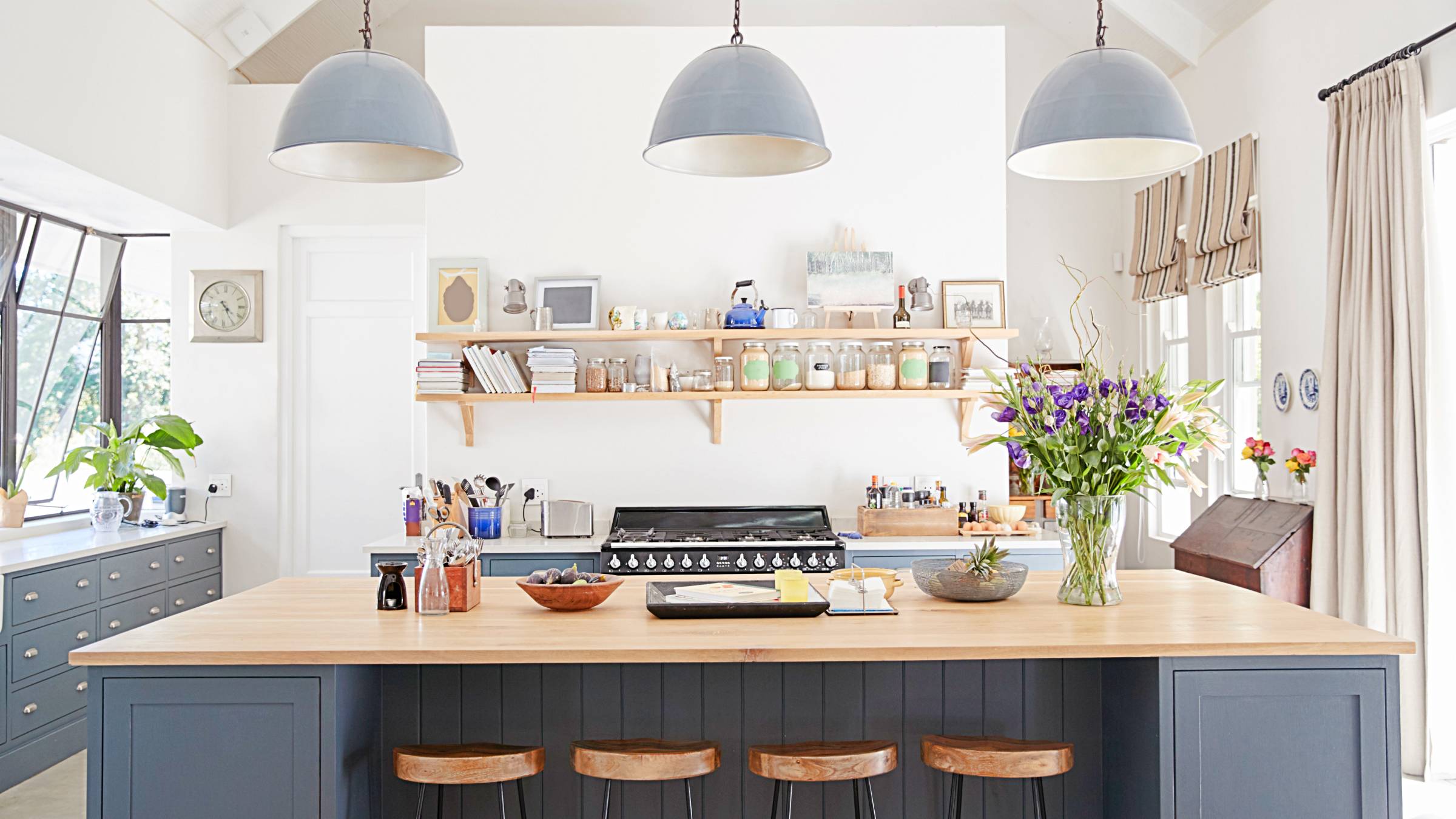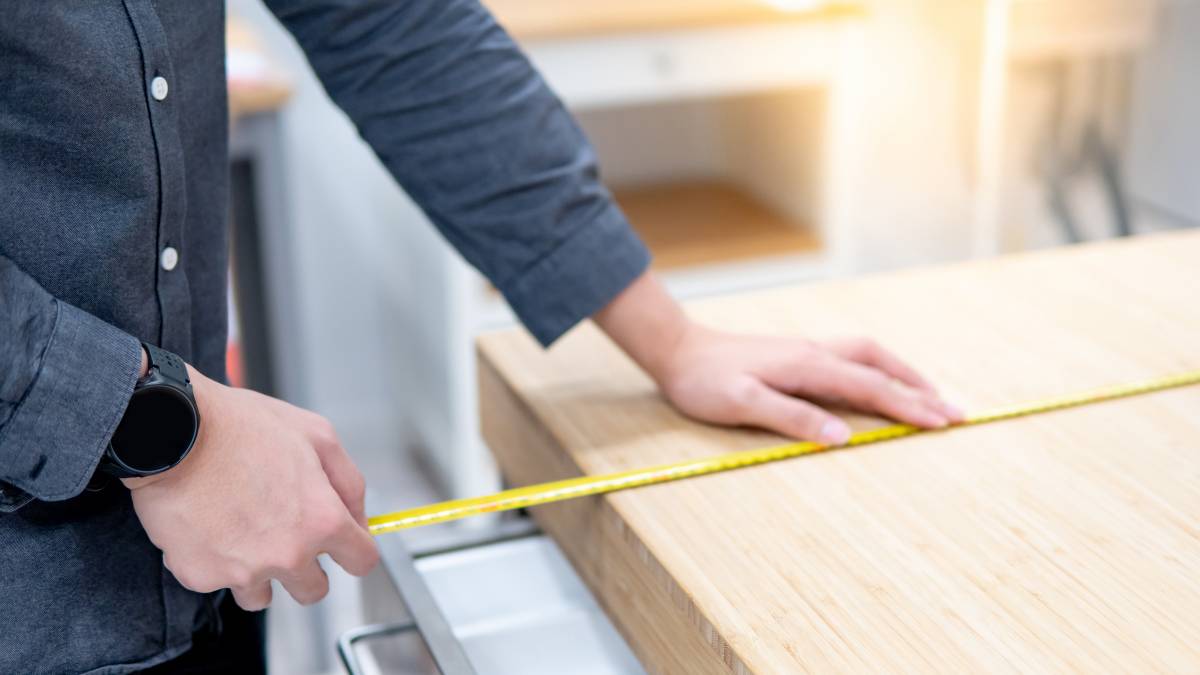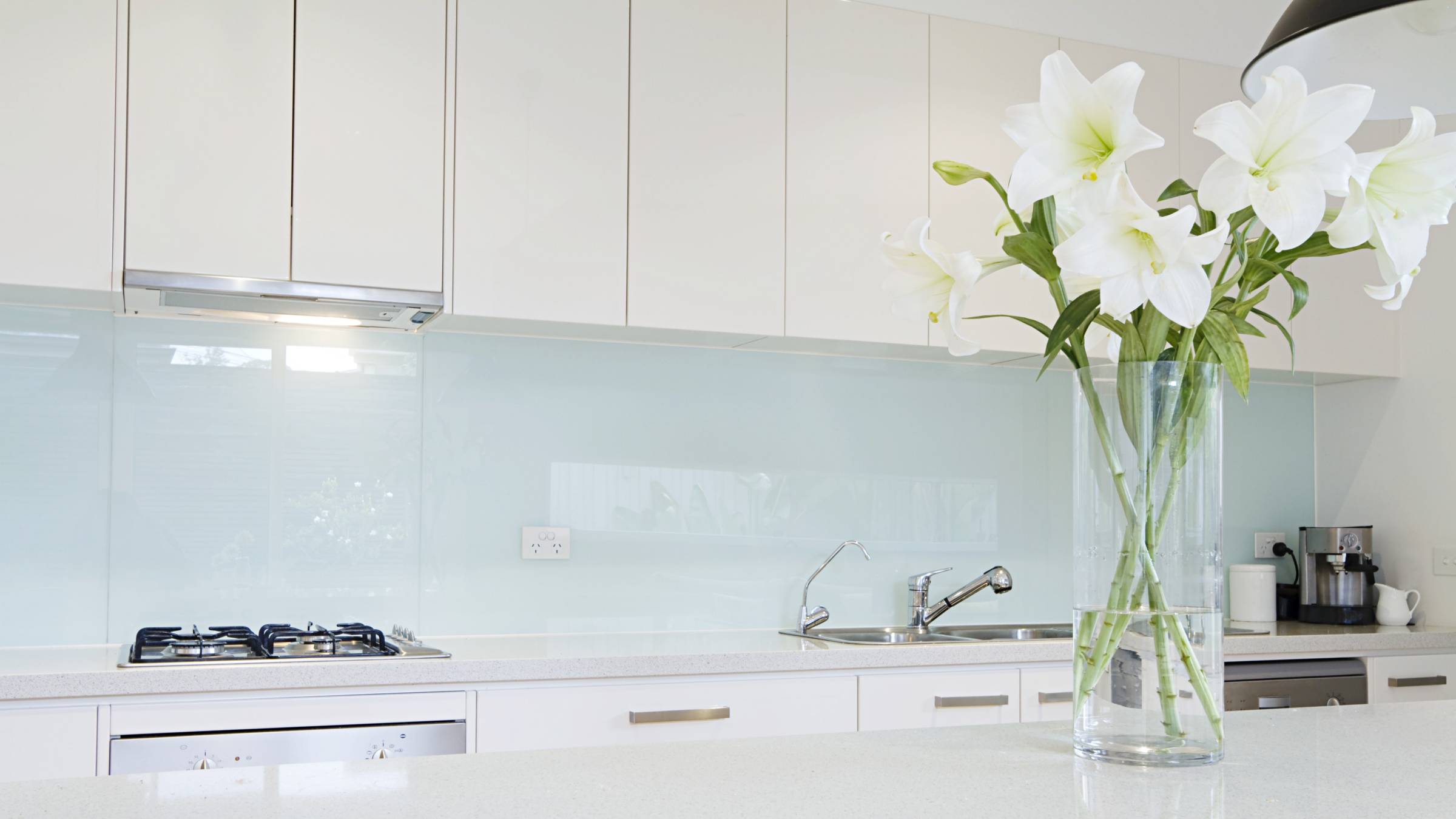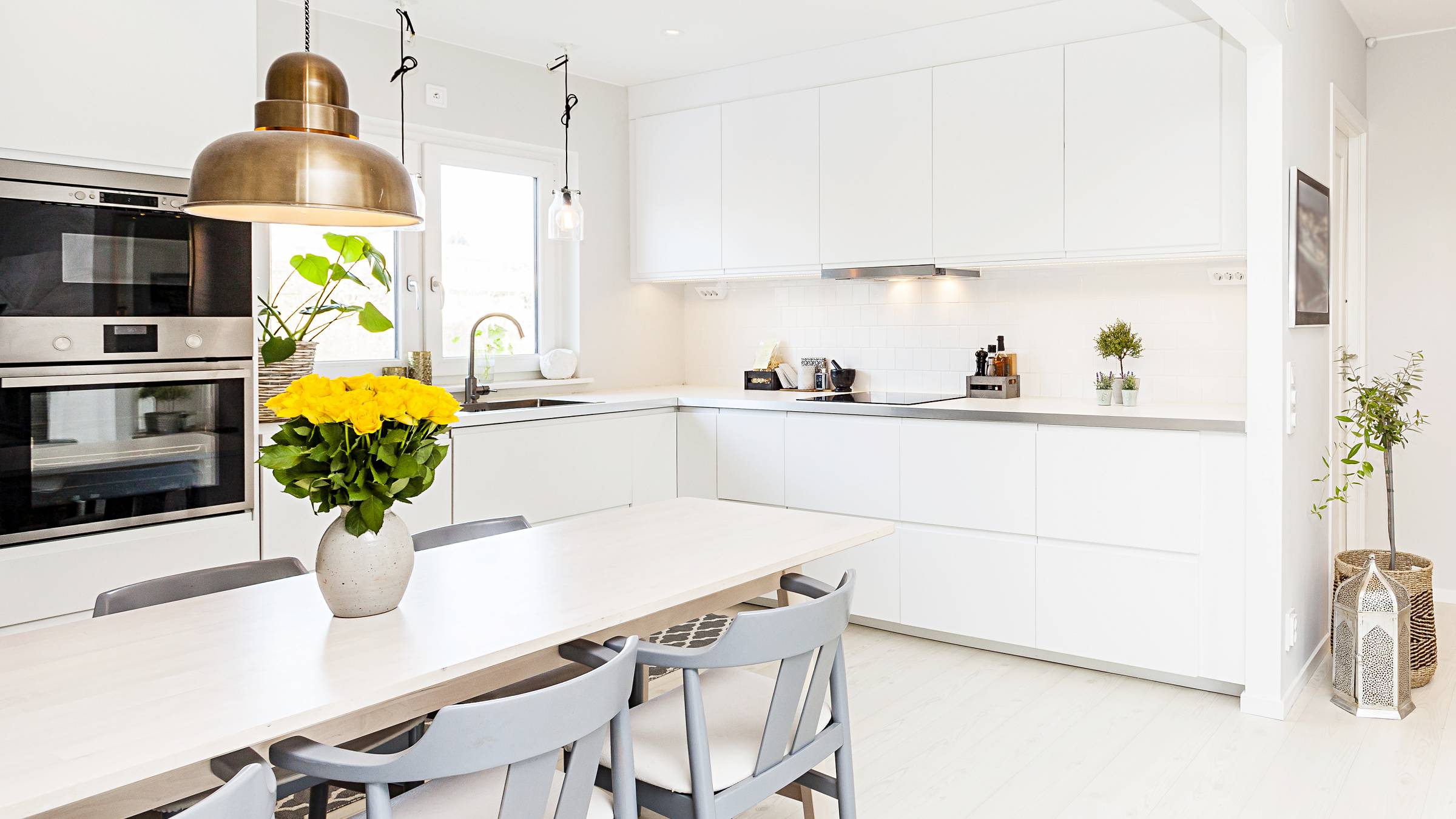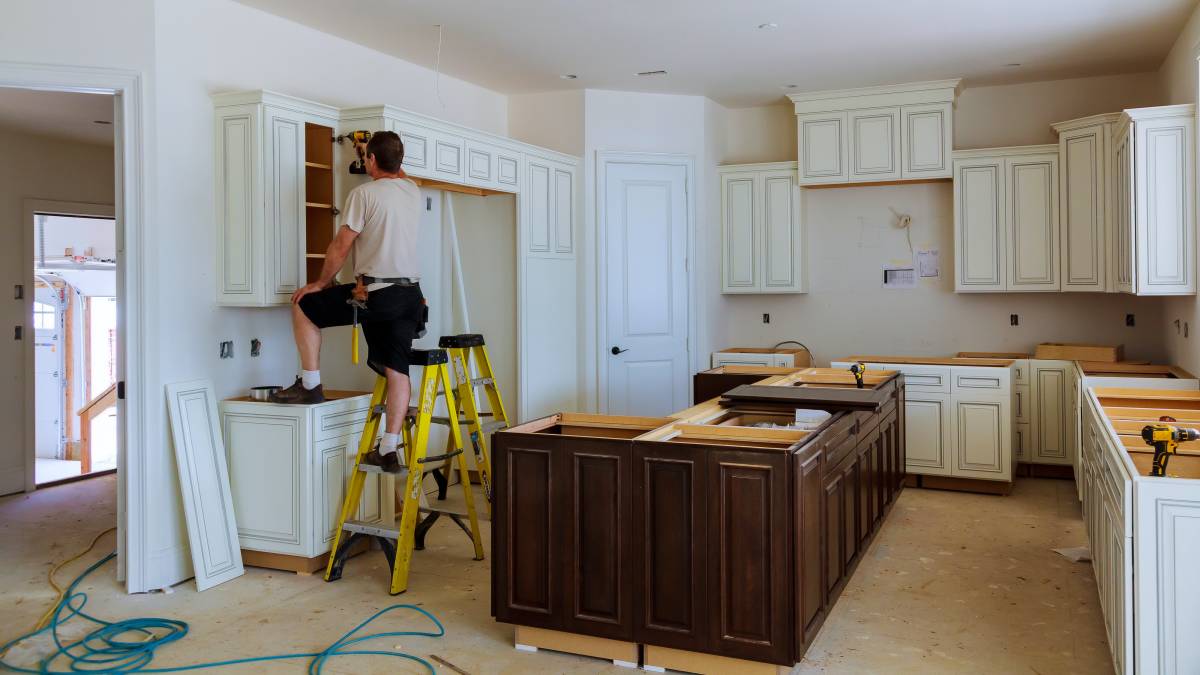- Home/
- Guides/
- Kitchen Renovation/
- Kitchen Benchtop Ideas
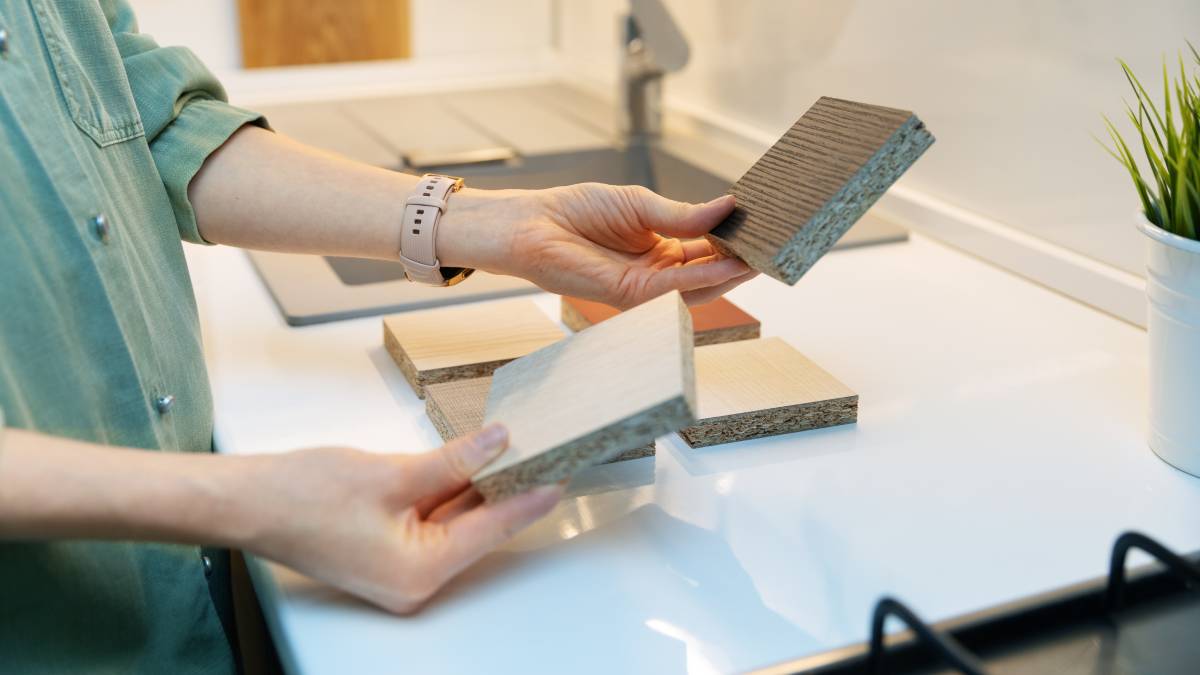
Kitchen benchtops: Ideas for style and function
Get inspired with these kitchen benchtop ideas to upgrade your space!
Talk to a renovation expertLast Updated on
Choosing the right kitchen benchtop material can feel overwhelming. Many options are available, and it’s a crucial part of your kitchen’s functionality and appearance. Researching all the options and designs can help you understand how each can meet your long-term needs.
To help you get started, this guide will explore each top kitchen benchtop material and evaluate its pros and cons.
Different types of kitchen benchtop materials
Engineered stone benchtops
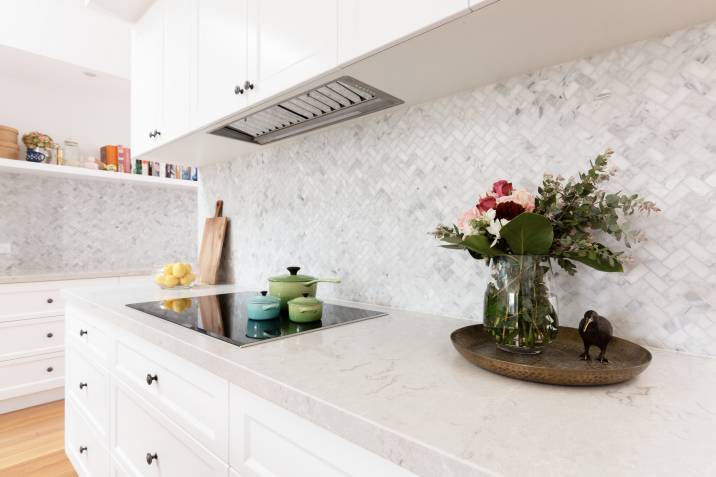
Engineered stone is made by combining natural aggregates with resins, resulting in a wide range of colour options, from bright whites to dark greys. You can opt for a solid colour or add flecks of different-coloured stones for added visual interest. This also works if you want to include an integrated sink for durability and style.
Pros:
Engineered stone offers a wide range of colours and patterns, mimicking the look of natural stone
It is non-porous, making it resistant to stains and bacterial growth
Engineered stone is highly durable and can withstand daily wear and tear
It requires minimal maintenance, usually only needing regular cleaning
Cons:
Engineered stone can be relatively expensive compared to other materials
It may be susceptible to heat damage if hot pans or pots are placed directly on the surface
Recommended for: Busy kitchens and households that require low maintenance.
Natural stone benchtops
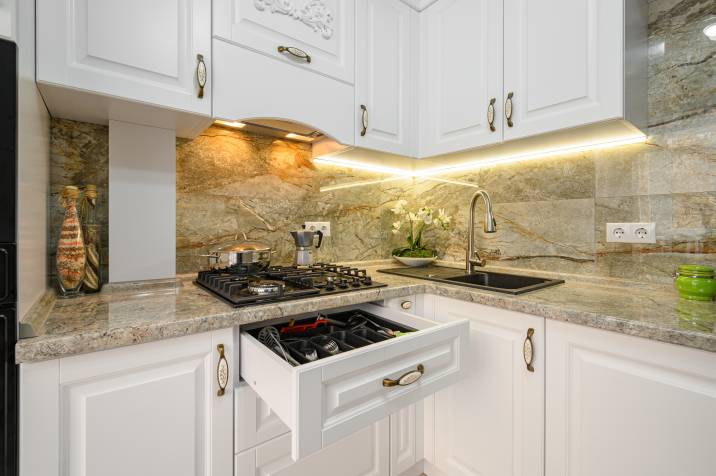
Benchtops such as granite or marble offer a timeless and luxurious aesthetic that elevates any kitchen, especially those with concrete floors. It is heat-resistant, making it ideal for avid cooks. However, it can be prone to scratching and chipping, so seal it regularly to prevent staining.
Pros:
Offers unique patterns and colours, adding elegance to any kitchen
Can withstand high temperatures
Durable and long-lasting when properly maintained
Provides a high-end look that can increase the value of your home
Cons:
Requires regular sealing to prevent staining
Can be susceptible to scratching and chipping if not handled with care
Some types are porous and may absorb liquids if not sealed properly
Recommended for: Busy family kitchens or homeowners constantly cooking something.
Metal benchtops
Metal, especially stainless steel benchtops, have a sleek and contemporary appearance that adds sophistication to any space. The material is easy to clean, and metal benchtops are well-suited for households prioritising cleanliness.
They’re also stain- and scratch-resistant and can withstand hot pans and pots without damage. But, a stainless steel benchtop may require regular cleaning to remove fingerprints and smudges.
Pros:
Hygienic and easy-to-clean surface
Heat-resistant and durable
Resistant to staining and scratching
Custom fabricated to fit any kitchen layout
Cons:
Stainless steel show fingerprints and smudges more easily
Prone to dents requiring regular maintenance
Relatively noisy when utensils or objects are dropped on them
Recommended for: Homeowners with modern and industrial-style kitchens with medium to heavy usage.
Laminate benchtops
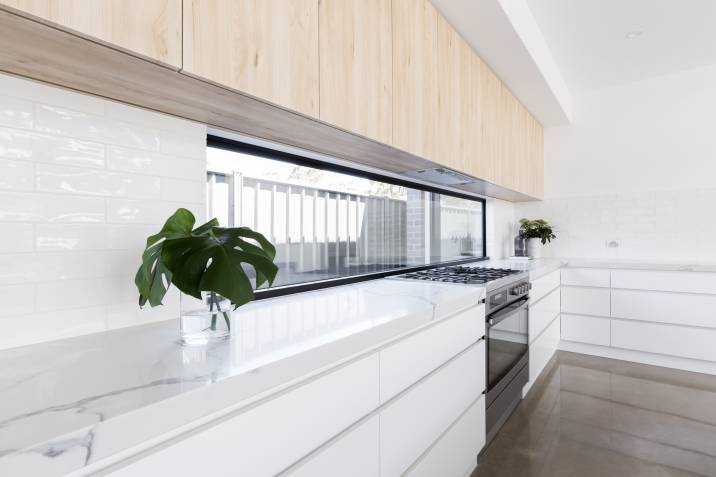 Working with a tight budget? Laminate benchtops are an excellent choice that doesn’t compromise style! Laminate benchtops can imitate the look of more expensive materials like timber, stone, and concrete. This allows you to achieve the desired aesthetic without the hefty price tag.
Working with a tight budget? Laminate benchtops are an excellent choice that doesn’t compromise style! Laminate benchtops can imitate the look of more expensive materials like timber, stone, and concrete. This allows you to achieve the desired aesthetic without the hefty price tag.
But know that they are more susceptible to scratching and scorching, so it’s important to use cutting boards and exercise caution with hot pots and pans.
Pros:
Extensive range of colours, patterns, and finishes, including realistic stone and wood textures
Relatively inexpensive compared to other materials
Easy to clean and maintain
Moisture and stain-resistant when properly cared for
Cons:
Less heat-resistant compared to stone or metal, requiring the use of trivets or hot pads
Prone to scratching and chipping over time
Surfaces can be less durable and may need replacing sooner than other materials
Recommended for: Budget-conscious homeowners seeking a wide variety of design options.
Timber benchtops
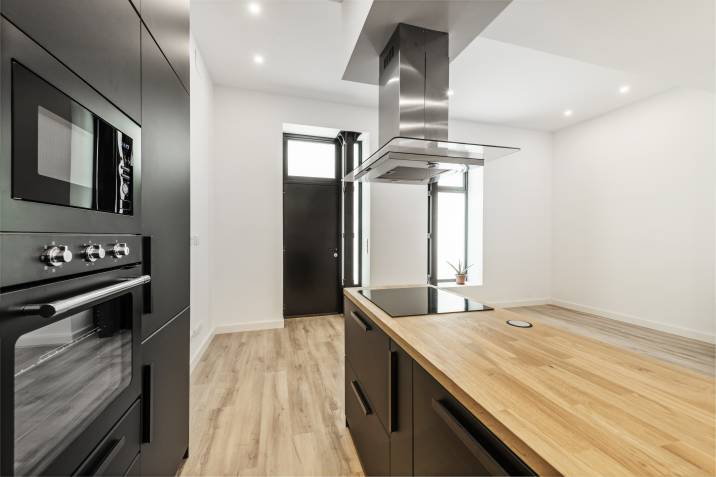
This benchtop material brings a warm and inviting aesthetic to the kitchen, ranging from country rustic to sleek modern styles and complementing other materials like glass and stainless steel. This appearance also works well with open shelves.
However, timber kitchen benchtop requires regular sealing and maintenance to prevent water damage and staining. It is also more susceptible to heat damage and may be prone to scratches and dents. For protection, annually coat with oil and food-safe polyurethane involving sanding before recoating.
Pros:
Natural and inviting aesthetic, adding warmth and character to the kitchen
Renewable and sustainable material choice
Can be sanded and refinished to remove scratches or stains
Provides a smooth and comfortable surface for food preparation
Cons:
Requires regular sealing and maintenance to prevent water damage and staining
More susceptible to heat damage and may require the use of trivets or hot pads
Prone to scratches and dents compared to other materials
Recommended for: Homeowners seeking a warm and natural look in their kitchen. They work best in kitchens with low to medium usage.
Bamboo
Bamboo is a rapidly renewable resource. It is naturally antimicrobial, ensuring a hygienic surface. Bamboo can be durable and moisture-resistant if sealed properly and regularly. But it may be more susceptible to scratching and heat damage than other materials. Over time, it may darken due to light exposure.
Pros:
Unique and stylish appearance with natural grain patterns.
A renewable and sustainable material, making it an eco-friendly choice.
Naturally antimicrobial, inhibiting the growth of bacteria.
Offers durability and resistance to moisture when properly sealed.
Cons:
Requires regular sealing and maintenance to prevent water damage and staining.
Susceptible to scratching and less heat-resistant than other materials.
May darken over time due to exposure to light.
Recommended for: Homeowners who prioritise sustainability and natural materials. They are suitable for kitchens with low to medium usage.
Find the perfect kitchen benchtop for you
When choosing the right kitchen benchtop, consider durability, maintenance, heat resistance, and visual appeal. Your benchtop is more than a surface—it reflects your style and creates your dream kitchen.
Choose wisely and enjoy the beauty and functionality for years to come. If you’re unsure what to pick, get kitchen renovation experts who can guide you through the process, from material selection to seamless installation. Whether you’re having it custom-built or installing a pre-made IKEA benchtop, they have the solution for you.
Put up a task, specify your needs, budget, and location, and start your kitchen transformation journey! With the help of these professional Taskers, your kitchen vision will come to life!
FAQs on kitchen benchtop
Laminate benchtops are more affordable than other materials like timber. They provide durability, easy maintenance, and resistance to staining. Ideal for budget-conscious homeowners, laminate benchtops are both practical and cost-effective while still delivering quality.
Natural materials like wood, stone, marble, and metals are on-trend due to the rise of eco-centric design. But more than the trends, consider your unique needs, preferences, and kitchen design when choosing a kitchen benchtop material.
On a kitchen bench, you can place small appliances, utensil holders, cutting boards, canisters, fruit bowls, and decorative items. Balance functionality and aesthetics by keeping essentials accessible while maintaining a clean and organised space.
Find kitchen renovators, fast
Find a kitchen renovator
Related articles
Related price guides
